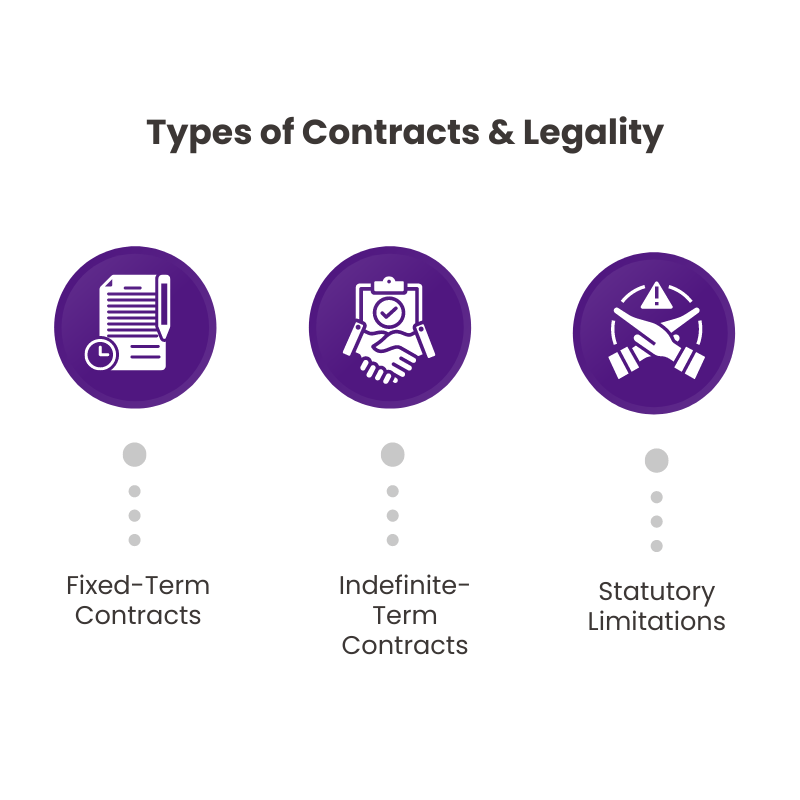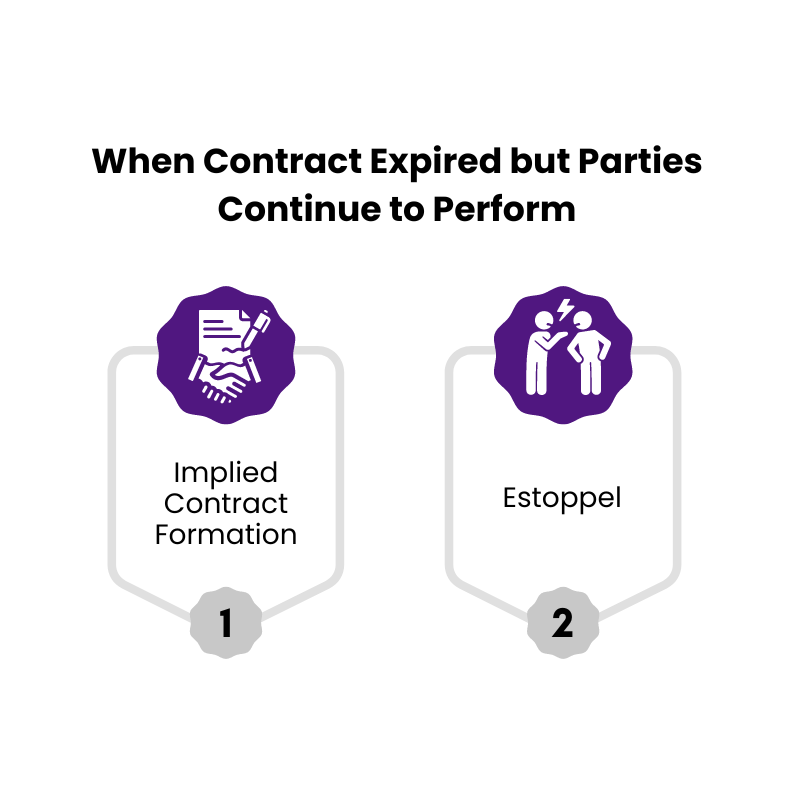The contract expiry date serves as a fundamental pillar upon which rests the enforceability of a contractual relationship.
Misunderstanding the implications of, or inaction upon, this date can result in the forfeiture of rights, unexpected obligations, and potential exposure to legal disputes surrounding contract expiration.
In this blog post, we’ll take a closer look at the following:
- The meaning and importance of contract expiration dates
- Whether contracts have inherent expiration timelines
- The consequences of a contract expiring
- The validity of contracts without end dates
- Scenarios where parties continue performance after a contract has expired
The Significance of Contract Expiry Dates
A contract expiry date, also known as a contract end date or expiration of contract, is a predetermined date upon which the terms and obligations outlined within a contract cease to be legally binding.
Expiry dates are crucial components of contracts, especially fixed-term agreements, as they provide clarity on the intended timeframe for the contractual relationship.
Explicit expiry dates prevent ambiguity and potential disputes by creating a definitive point at which parties are released from their contractual obligations. They also serve as important reminders for timely renewals or renegotiations, avoiding unintentional lapses in agreements that might be critical for business operations.
When Do Contracts Expire?

While the importance of a contract expiry date is clear in fixed-term contracts, you might wonder if there are inherent expiration timelines for contracts in general. The answer depends on the type of contract and the applicable laws in your jurisdiction.
- Fixed-Term Contracts: These contracts explicitly outline a start and end date, creating a defined period for the contractual relationship. Expiry dates are essential components of fixed-term contracts.
- Indefinite-Term Contracts: These lack a specific end date, allowing the agreement to continue until terminated by either party with reasonable notice. At-will employment contracts are common examples.
- Statutory Limitations: Some jurisdictions establish time limits on the enforceability of certain contract types, even if the contract does not have an explicit expiration date. These statutes of limitations may dictate timeframes within which legal action must be taken in the event of a contract breach.
What Happens When a Contract Expires?

The consequences of contract expiration depend on the specific terms of the agreement and whether the parties involved actively choose to renew, renegotiate, or terminate it. Here’s a breakdown of possible outcomes:
- Automatic Termination: Many contracts specify that upon reaching the expiry date, the agreement terminates automatically. In this case, any outstanding obligations may be nullified, and parties are freed from further performance.
- Renewal Clause: Contracts often include automatic or optional renewal clauses. An automatic renewal extends the contract for another term unless one party actively opts out. Optional renewals allow for the possibility of extension if both parties agree.
- Negotiation: Approaching the expiry date can trigger discussions between parties to modify the existing contract with new terms or create a new agreement entirely.
- Holdover Clause: Some contracts include a holdover clause allowing parties to continue their relationship on a month-to-month basis after the expiry date, providing time for negotiations or a smooth transition.
How Long Do Contracts Last?

There is no universal length for contracts. Contract durations vary widely depending on the agreement’s nature. Here are some factors that influence contract length:
- The Complexity of the Agreement: More complex agreements covering a wide range of issues or long-term projects might necessitate longer contract periods.
- Industry Standards: Certain industries might have conventional contract lengths.
- Specific Needs of the Parties: The parties can negotiate durations that align with their business objectives and risk tolerance.
Is a Contract Without an End Date Valid?

While contract expiry dates are common practice, you might encounter agreements without clearly defined end dates. The validity of such contracts depends on several factors:
- Type of Contract: Certain contract types, such as at-will employment agreements, may be intentionally open-ended.
- Jurisdictional Laws: Specific laws in your jurisdiction might dictate how courts interpret contracts lacking explicit expiry dates.
- Implied Termination: Even without an expiry date, courts might imply a reasonable timeframe for termination based on the nature of the agreement and the intent of the parties.
When Contract Expired but Parties Continue to Perform

Sometimes, even after contract expiration, parties may continue to act as if the contract is still in effect. This raises questions about the legal implications. Here are key points to consider:
- Implied Contract Formation: If both parties continue to perform after expiry without objection, a court might infer the formation of a new implied contract under the original terms or modified terms based on the parties’ conduct.
- Estoppel: The legal principle of estoppel may prevent a party from denying the existence of a contract if they’ve continued to perform and accepted benefits as though the agreement were still binding.
Contract Expiration Clauses
Contract expiration clauses are specific sections in contracts that outline the consequences of the contract reaching its end date. These clauses are important for minimizing disputes and ensuring all parties are clear on how the process of termination or renewal will be handled.
Understanding contract expiry dates, their implications, and the nuances surrounding contract expiration is crucial for protecting yourself or your business in contractual relationships.
By paying careful attention to expiry dates and clauses, seeking legal advice when necessary, and being proactive in addressing the end of contract terms, you can ensure smooth transitions and avoid potential legal disputes.




